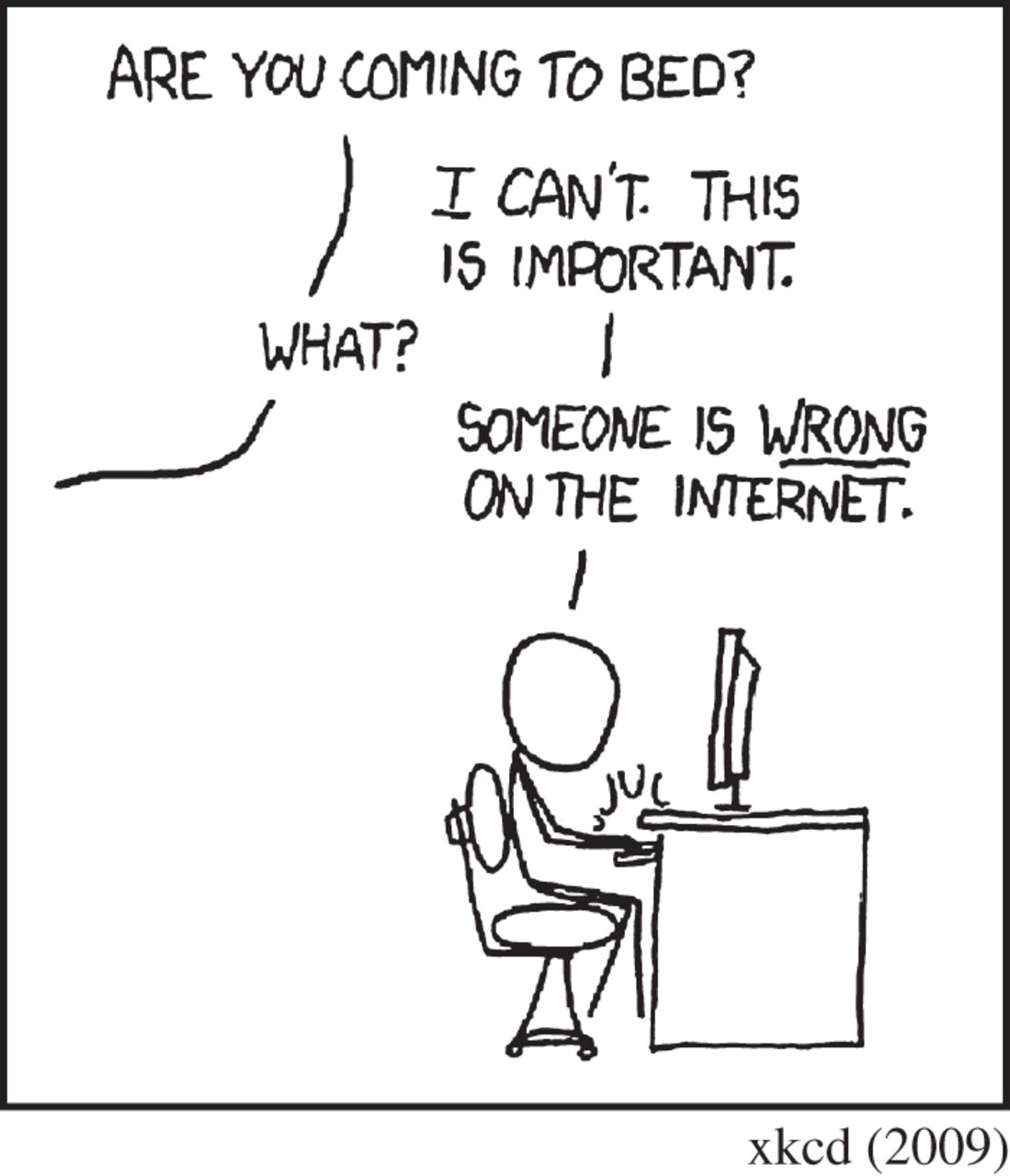We kicked off The Week of The Dissolve with some personal reflections on what the site meant to me, and then followed that up yesterday with a few of the many highlights from its editors, staff writers, and contributors during its too-brief run. Today, we focus on the readership.
As I’ve repeatedly emphasized, one of the more remarkable things about The Dissolve was the community it fostered among its readership – a community that has outlasted the site.
I can’t think of too many similar examples, and I know for a fact I’ve never been part of one. It’s not an exaggeration to say that, for myself and quite a few others, the collapse of The Dissolve was painful and worrisome not just because we valued the insight of its writers and the scope of their knowledge, but also because we feared the loss of connection to people who started, in the comments, as relative strangers, but became a lot more like friends you’d never actually met.
How did that happen? For veterans of various internet forums, it’s probably not too weird. (And for Dissolvers, this is probably an unnecessary retread.) But for those of us, like myself, who always shied away from that kind of participation, it retains an air of mystery. Why The Dissolve, and not some other site’s comment section? It’s not like the internet is lacking comment sections.
On the other hand, those comments section usually look a bit more like this:
The Dissolve readership? A bit less so. There were a few reasons I can think of off-hand for this.
First, the nature of the analysis and topics addressed encouraged participation, reflection, and friendly debate. A year ago, I summed up my take on the implicit tone and emphasis of The Dissolve:
[T]hat there’s validity to your viewpoint and you can approach things without tearing them down, but just to engage with them, see how they work, invite others to agree or disagree without it turning into some nasty or cynical endeavor to show how smart you are.
As a result, this tone carried over to the conversations beneath any given article, which overwhelmingly maintained an air of camaraderie that was almost entirely lacking the standard internet vitriol. It was an exception then and remains one now.
But a lot of the charm and the participatory impulse can’t be attributed to the writers at all. (No offense to them, of course, and I’d imagine they’d agree.) There was an admirable sense of initiative that animated the discussions among its readership. Folks effectively commandeered the comment sections for our own purposes, which the site’s editors may or may not have found laudable. Comments are surely welcomed; your readership using your work as a launching pad for entirely extraneous endeavors might conceivably be annoying. To its great credit, The Dissolve took a largely hands-off approach to the discursive runaway train its comment sections became – if anything, the occasional presence of its contributors in those discussions encouraged their growth, blurring the line between text and (literal) subtext.
Daily features appeared in the comments, as well as a number of self-born series. It became its own world down there. A profoundly non-exhaustive list: there was Lovefest, where people wrote essays about derided films they nevertheless enjoy (Hatefest fared less well, with people eventually deciding it was too toxic and contrary to the spirit of the thing); there was the Self-Promotion Thread, where people claimed space to talk about what they’d been working on; there was a Corner of Happiness, in which we took a moment to celebrate something good in our lives; there was The Dissolve Record Club, the Summer of Rabin, and a million more I’m forgetting.
For the various recurring sub-features, enterprising commenters created posting schedules, so people weren’t talking over each other. There were no hard and fast rules handed down by erstwhile moderators, but something very much like a democratic process invented on the fly. Whether people knew it or not, they were engaged in what seems, in retrospect, to be a model of anti-authoritarian discourse and organization, even if we mostly eschewed overt politics for discussions of culture both meaningful and deeply silly.
Or at least I thought so. (I’ve been accused in the past of making too much of things, and I wouldn’t argue too strenuously against that notion.) But what remains strikingly clear, reading through some of those threads now, is how committed and passionate people were to the discourse, and to the atmosphere.
It would be so, so easy to make fun of all of this – and some surely did. It was a touchy-feely, super-sensitive forum, filled with people eager to congratulate each other, to disagree agreeably, and to engage in smart, polite conversation. All of these things are anathema to the wider culture. And The Dissolve was valuable for that reason alone. (You will notice how easily I slip between using “The Dissolve” to refer to the site and to refer to the community, the readership and its site-within-the-site. This is emblematic of the sort of identification it fostered, as well as the weird, subterranean set of connections it allowed, whether it meant to or not.)
I’m quoting someone – I don’t remember who – when I call The Dissolve “the last bastion of decency on the internet.” I’d go further and call it – the sub-Dissolve – a radically democratic experiment in being kind.
It was a wonderful thing while it lasted, and a small miracle that it’s continued in offshoots and different forms since the overarching framework The Actual Dissolve provided ran its course. The Dissolve Facebook group has grown to over 1,000 members, and many of the features born in the comments have made the transition. Of course, Facebook has its own problems, which moderators and participants have worked to navigate. It’s not a perfect substitute, but it’s an admirable attempt to keep something meaningful alive.
The Dissolve, to make a long story longer, was made by committed and passionate writers, and sustained by a readership who made it their own in unique ways. Since the site folded, many of its participants and enthusiasts have also launched projects of their own. (Many, of course, were working on projects long before they found The Dissolve, too.) Tomorrow, we’ll spotlight as many of these as we can.
The lines between reader and writer were always porous on The Dissolve during its run. It’s fitting that its legacy should involve both.
__
Tomorrow, we’ll check in on what some readers have been up to in the months since The Dissolve folded. On Friday, we’ll wrap this thing up by emphasizing the various greener pastures in which the site’s writers can be found these days.


